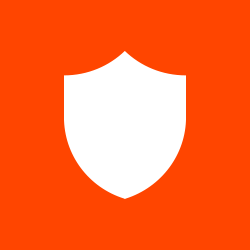Cross-posted to: https://sh.itjust.works/post/15859195
From other conversations that I’ve read through, people usually say “Yes, because it’s easy on Windows”, or “Yes, because they simply don’t trust the webcam”. But neither of these arguments are enough for me. The former I feel is irrelevent when one is talking about Linux, and the latter is just doing something for the sake of doing it which is not exactly a rational argument.
Specifically for Linux (although, I suppose this partially also depends on the distro, and, of course, vulnerabilites in whatever software that you might be using), how vulnerable is the device to having its webcam exploited? If you trust the software that you have running on your computer, and you utilize firewalls (application layer, network layer, etc.), you should be resistant to such types of exploits, no? A parallel question would also be: How vulnerable is a Linux device if you don’t take extra precautions like firewalls.
If this is the case, what makes Windows so much more vulnerable?
I do, for three reasons:
- Hackers. It’s unlikely that anyone would hack my webcam, but there’s always a chance. Maybe I’m paranoid, idk.
- Hardware exploits. Three of my laptops are too old for me to update the firmware with
fwupd, so I cover the webcams in case there’s some critical hardware-level vulnerability which could be exploited; or in case one of the three-letter agencies are in there. - Consequences. Despite the incredibly low chances of anything happening whatsoever, the possible consequences are too bad for me to want to risk it.
I’m paranoid, aren’t I…
And for me: 4. It makes it a lot harder to accidently turn my camera on in meetings (a different form of privacy)
Also, it’s incredibly low effort to cover it. There’s no subscription plan for covering a webcam.
Security is always applied in layers. If you aren’t inconvenienced by it, it’s a really solid layer to use. Doesn’t matter how ‘paranoid’ you are, it’s a good strategy.
Is it unnecessary to cover one’s webcam on Linux?
No. Please cover your webcam.
how vulnerable is the device to having its webcam exploited?
Every bit as much as Windows minus their proprietary spyware.
How vulnerable is a Linux device if you don’t take extra precautions like firewalls.
Depends on what links you like to click.
what makes Windows so much more vulnerable?
Fewer eyes on the source code. Effort to reward ratio, the 80-20 rule. 20% of the effort nets your 80% of the reward. Literally. Develop exploits for one platform, target 80% of average computer users. Or write exploits for hundreds of different distros for *checks notes* … 4%. Unless you like servers. There there’s a coin toss. 50% linux, 50% Windows.
Keep yourself safe, there’s malware for Gnu-Linux too. Install your patches when you can. Remove software you don’t use. Practice good cyber hygiene.
If this is the case, what makes Windows so much more vulnerable?
As with most exploits: they go for where the most and easiest targets are.
As a Linux user it is very unlikely that anyone will try to hack your webcam, even if Linux were similarly vulnerable as Windows.
The device is vulnerable. The webcam is one way that gets exploited.
If it makes you feel safer, cover the camera when you’re not using it. I can’t comprehend why a person wouldn’t cover it up when it’s not in use. It takes one second.
Stay patched up.
It’s really cool how a lot of Laptops nowadays (including mine) have a feature built-in that covers and disables the webcam with a button press. I can have it disabled most of the time and when I need it, I just press the button to enable it.
Wash your cyber hands, use good quality, cyber soap, cyber shower regularly 👌
just buy a little stick-on privacy slider. They’re like 3 for $10
If I had a nickel for every time I bought a privacy slider for a laptop that already had one, or one with a hard-to-notice hardware switch. I would have 2 nickels which isn’t a lot but it’s weird it happened twice.
these sliders are very thin, but not thin enough. neither of my laptops close correctly with one equipped. :(
Ah well. Masking tape suffices.
yeah for my macbook, i use gaffer’s tape.
My take: if your camera is spying on you, there is a big chance that your entire device has been compromised. Ig that happens, it’s game over and me masturbating to bdsm furry porn is the least of my problems. Especially now that AI video exists anyway.
It’s all about reducing the surface area for an attack — if you do become compromised, it’s one less thing to have to worry aobut. It would be preferable to not have to worry about your data and someone bribing you with some video footage.
It’s a hardware issue not a software issue. If your laptop can run its webcam and not have the light turn on then it’s bad hardware. Software might get around one exploit, but that doesn’t fix what’s a hardware issue.
Honestly, I don’t think anyone can actually say 100% for sure that your webcam can’t be accessed. We don’t know what we don’t know—new exploits are discovered every day—thus it’s worth the extra 2 seconds to cover and uncover it.
If you are running zoom, teams, skype or similar software, cover it.
Better yet, use them in a VM or don’t use them at all.
Linux is not magically more resilient than Windows. If an exploit on windows exists, a similar exploit could also exist on Linux.
You can’t hack a piece of electrical tape. But there are classier webcam covers which you can slide to close available for sale.
All software has bugs, including Linux. Some bugs can lead to security escalation. Those bugs are called vulnerabilities. Like bugs, all software has vulnerabilities - including Linux.
Your webcam can be accessed by hackers on Linux, on Windows, on MacOS, on BSD, it doesn’t matter.
If they have that level of access you are in trouble
Uh, yes? It always seemed a bit silly to me. If they have that level of access you are in trouble
“you’re already* in trouble”
Thanks
This question really begs the point that cam and mic need kill switches that physically disconnect these things with a simple switch.
One of you go make a wall mounted light switch thing with a red LED for Workstations and sell it – I could see this becoming standard.
Laptop world is going to take more inroads from slacker hackers scratching their own itch.
If you trust this source, it turns out that it is pretty easy to see your camera feed even if your camera is off: https://techxplore.com/news/2024-02-camera-hackers-spy-cameras-walls.html
I read about it on lemmy, too. I guess I – or one of us – should have cross posted it here from its .world source: https://lemmy.world/post/12081766
Edit to add excerpts:
Results vary on how far away someone would have to be in order to eavesdrop on these different devices. For some, a peeping Tom would have to be less than 1 foot away; for others, they could be as far away as 16 feet.
For consumers, Fu says a plastic lens cover might not be guaranteed to protect you—infrared signals can still get through them––but it is a good first step to battling this kind of cyberthreat.
The way I would look at it is:
- If you aren’t sure you can trust your computer, you should probably cover your webcam.
- Your level of risk tolerance can vary, so what a person would consider trustworthy may differ from person to person. (For some, maybe any proprietary software makes the computer untrustworthy. For others, maybe they feel smart enough to make good decisions about what software is trustworthy and they just don’t download anything that sets off their spidey sense. Or whatever.)
- If you’re taking extreme measures to ensure your machine is trustworthy, you’re probably going much further out of your way than covering your webcam anyway. If you’ve picked a lot of the higher branches clean anyway, you probably ought to go ahead and pick that remaining low-hanging fruit.
- Regarding Windows specifically, some would probably call Windows systems less trustworthy on some combination of that a) Microsoft is assholes that might themselves use webcam data in evil ways and/or b) Windows is more targeted by crackers and malware.











